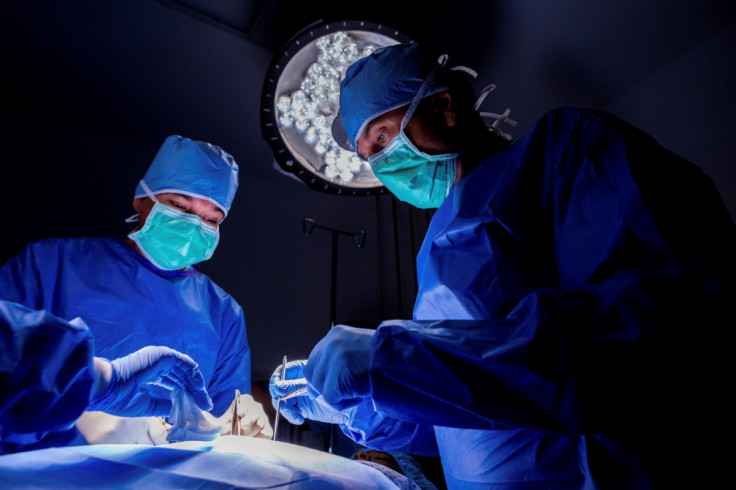Designer vaginas: Labia reshaping advert banned for being 'socially irresponsible'

An advertising campaign encouraging women to undergo plastic surgery on their labia, in order to achieve "a more natural appearance", has been banned after being deemed socially irresponsible. The ad, by the London Bridge Plastic Surgery and Aesthetic Clinic, is the latest in a growing industry promoting so-called "designer vaginas".
The newspaper ad, which appeared in the city's daily Metro newspaper in February, featured a picture of a woman alongside the words "labia reshaping". Text underneath included: "Achieve a more natural appearance"; and "Relieve the discomfort caused by enlarged Labia".
Several people wrote to the Advertising Standards Authority (ASA) to complain the advert encouraged women to be "dissatisfied with their bodies". They were also concerned it would lead to women undertaking "unnecessary cosmetic surgery" should they think their labia was oversized or abnormal, The Independent reported.
Most labiaplasty operations – surgical procedures to reduce the size of the labia – are carried out by private clinics in the UK. Many are for cosmetic reasons but occasionally there may be a medical need for the procedure (e.g. if the tissue is affected by disease).
The clinic defended its promotion saying they were helping people with "abnormally enlarged" labia which it said can be caused by childbirth, hormones or even sport activities. The clinic said that rather than encouraging women to be dissatisfied with their bodies it was "letting them know that the surgery existed so they could choose to do something about the condition".
The ASA, the UK advertising regulator, said in a statement that it understood it was "natural and normal for a woman to have noticeable skin folds around her vaginal opening", but added: "It was also natural for the labia minora to vary widely in appearance."

In a ruling published on Wednesday (11 May), it concluded: "We considered that the description of labiaplasty as achieving 'a more natural appearance' implied that the pre-surgery labia might be somehow 'unnatural' in appearance. We considered that it was irresponsible to imply that any part of a person's body was not natural in appearance, including because it could encourage them to be dissatisfied with their body, regardless of whether or not it encouraged them to undertake cosmetic surgery."
The ASA told London Bridge Plastic Surgery it was not allowed to show the advert again, adding: "We told them to take care when advertising labiaplasty to ensure that they did not encourage women to be dissatisfied with their bodies."
There has been a rapid rise in the popularity of women having cosmetic surgery on their vaginas. A study by the Royal College of Obstetricians and Gynaecologists (RCOF) and the British Society for Paediatric and Adolescent Gynaecology (BritSPAG) found over 2,000 operations of this kind were carried out in 2010 in the UK.
As a result, experts have warned about the risks and dangers involved in female genital cosmetic surgery (FGCS), especially among girls below the age of 18 as their vaginas have not fully developed.
© Copyright IBTimes 2025. All rights reserved.




















